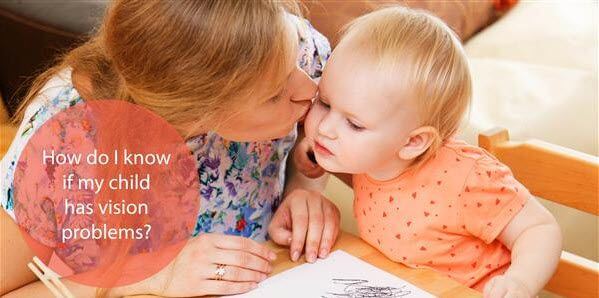The Best Guide To Eye Checks
Table of ContentsThe Facts About Adult & Paediatric Eye Surgery RevealedThe Buzz on Adult & Paediatric Eye SurgeryWhat Does Adult Cataract Do?The Of Eye Exam
Eye doctors are medical doctors who concentrate on the medical diagnosis as well as therapy of eye as well as vision issues. What is the distinction between an ophthalmologist as well as an eye doctor, after that? What concerning opticians? These three kinds of eye care professionals have instead similar-sounding names as well as overlapping work descriptions. It can be perplexing initially glance.They can not give eye examinations, create prescriptions, or detect or deal with eye problems. can examine your eyes, test your vision, prescribe glasses or get in touches with, and also identify as well as treat lots of eye conditions and diseases. They are not clinical doctors or specialists however can recommend particular eye-related medicines (http://drcrlinecatt.bravesites.com/entries/general/all-about-comprehensive-ophthalmology). also give eye exams, vision testing, as well as prescriptions for glasses or contact lenses.

Eye doctors diagnose and treat injuries, infections, conditions, and disorders of the eye. Treatments can include medication taken by mouth (by mouth) or topically (in the eye), surgical treatment, cryotherapy (freeze therapy), and chemotherapy (chemical therapy). Eye doctors go to medical school after that get a number of years of specialized training in the clinical as well as surgical care of the eye.
The Only Guide for Eye Checks
As they are the only medical specialists who can treat all eye disorders, ophthalmologists see a variety of eye conditions, consisting of: How typically should you have an eye exam? What are signs and symptoms that suggest you may have an eye trouble that requires to be inspected by an optometrist? The American Academy of Ophthalmology suggests: As youngsters's eyes are expanding and changing rapidly, they ought to get a vision screening.
Grownups who have healthy and balanced eyes and excellent vision ought to have four extensive eye examinations: one in their 20s, two in their 30s, and also one at age 40. These examinations may permit the ophthalmologist to catch an eye disease or vision adjustments early. By the time you observe signs and symptoms, you may currently have some vision loss (ADULT STRABISMUS).

People that go to a higher threat of eye disease may need to get an eye examination more usually. This can consist of people with diabetes mellitus, hypertension, or a family members background of eye problems - ADULT & PAEDIATRIC EYE SURGERY. After age 65, your eyes need to be inspected each to two years. No matter age, people who use get in touches with need to have a total eye exam each year.
Your view depends upon seeing the ideal ophthalmologist at the right time. When it's time to "get your eyes inspected," see to it you are seeing the appropriate eye care specialist for your requirements. Eye doctors, eye doctors as well as lens each play an important role in giving eye treatment to consumers. However the levels of training and know-how are fairly different for every kind of provider.
The 5-Second Trick For Adult & Paediatric Eye Surgery

is a clinical or osteopathic medical professional that focuses on eye and vision treatment. Ophthalmologists vary from optometrists and also lens in their degrees of training and you could look here in what they can diagnose as well as treat (https://myspace.com/drcrlinecatt). As a medical doctor that has actually finished university as well as at the very least 8 years of extra medical training, an eye doctor is accredited to exercise medicine as well as surgery.
Numerous ophthalmologists are additionally associated with clinical study on the reasons and treatments for eye diseases and vision conditions. SUBSPECIALISTS: ADDED UNDERSTANDING AS WELL AS TRAINING FOR SPECIFIC EYE requires While eye doctors are trained to care for all eye problems and conditions, some Eye M.D.s specialize in a details location of medical or medical eye treatment.
She or he typically completes a couple of years of additional, much more extensive training called a fellowship in one of the main subspecialty locations such as glaucoma, retina, cornea, pediatric medicines, neurology and also plastic surgery, along with others. This added training and also expertise prepares an eye doctor look after more complicated or particular problems in certain areas of the eye or in specific groups of people.
An eye doctor is not a clinical doctor. An eye doctor receives a doctor of optometry (OD) level after completing four years of optometry college, come before by three years or even more years of college. They are licensed to exercise optometry, which mostly includes doing eye exams as well as vision examinations, recommending and giving restorative lenses, finding certain eye abnormalities, and suggesting medications for particular eye conditions.
Eye Checks Things To Know Before You Buy
They make use of prescriptions supplied by eye doctors or eye doctors, but do not examine vision or write prescriptions for visual improvement. Opticians are not permitted to diagnose or treat eye illness. Most of us depend on our vision in even more manner ins which we might recognize. Without healthy and balanced vision, our capacity to work, play, drive or perhaps recognize a face can be dramatically impacted.
That's why it is so important to see an ophthalmologist for a full medical eye examination by age 40, and also then as typically as recommended by your Eye M.D.
A complete, clinical eye exam by an Eye M.D. might be the first step towards saving your view. Bulging of one or both eyes; Dark drape or shroud that blocks your vision; Decreased vision, even if momentary; Diabetes mellitus; Altered vision; Dual vision; Excess tearing; Eyelid problems; Family history of eye disease; Halos (colored circles around lights); High blood pressure; HIV or AIDS; Injury to the eye; Loss of outer (side) vision; Misaligned eyes; New advances (black "strings" or specks in the vision) and/or flashes of light; Discomfort in the eye; Thyroid disease-related eye issues (Tomb' illness); Uncommon red eye.